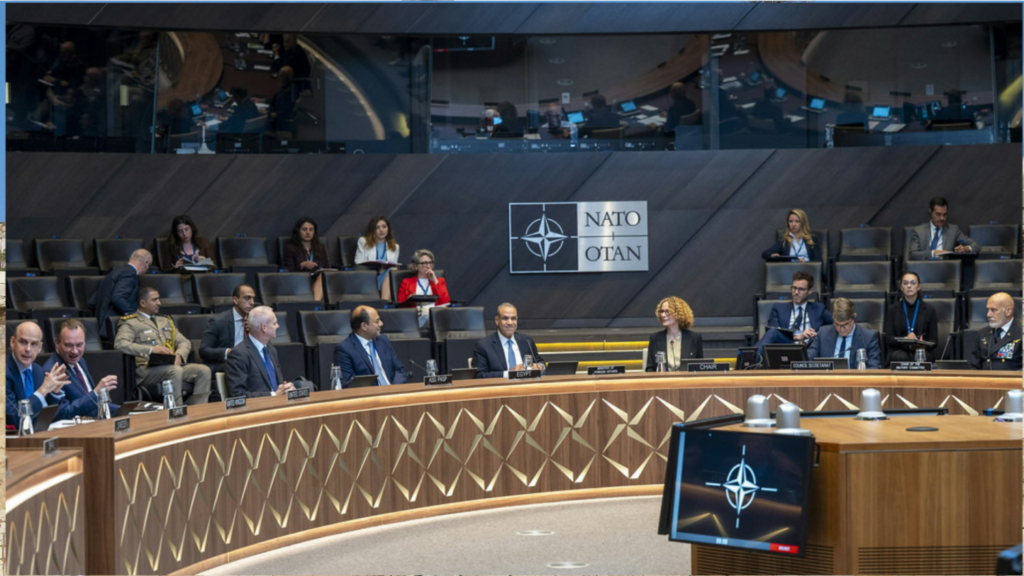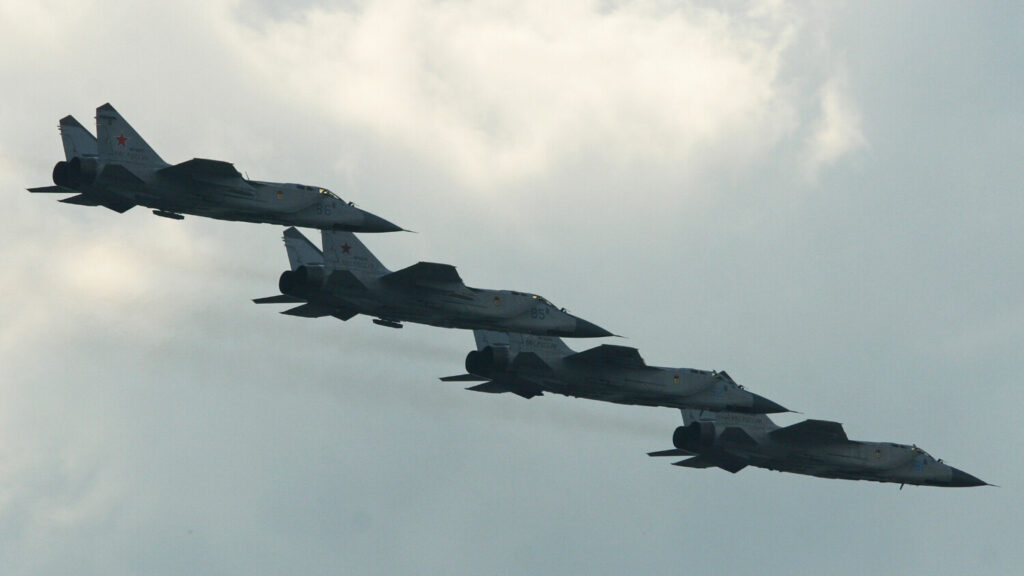Ukraine at the Crossroads: Still a Victim of Its Powerful Neighbour or Finally Moving towards True Democratic Independence?
Long thought of as a buffer between East and West and a key to Euro-Atlantic security, Ukraine is of special interest to NATO and the European Union. Not to mention that there, political decisions can align the country in only one of two directions. Given that these directions present the opposite values, they also imply different consequences for Ukraine.
Since 2014, we can also clearly see that a multi-vector policy that balances Ukraine between Russia and the West is no longer an option. Ukraine can decide to move into the EU’s orbit of democratization, defence of rights, and high standard of living. Then not only can the basic tenets of international security be defended, but also one more country at the crossroads can genuinely join the Western community and finally achieve political stability.
On the other hand, old “Russian” habits can die hard in Ukraine and as a result, it may upset the ‘balance of power’. In sum, Ukraine can turn away from the current Euro-Atlantic trajectory and return to the Russian sphere of influence. In spite of Ukraine’s obvious motivation to keep on moving in the direction of their Western neighbours and forge an independent path, not all-important steps are taken.
Europe’s part in defining the Ukrainian trajectory
It has been 7 years since the illegal annexation of Crimea by Russia and the destabilisation of Eastern Ukraine. In one of the few instances since WWII, a country in Europe conducted such a gross violation of international law, and still, a solution remains far off. Given the growing turmoil, Ukraine’s security and its Western-oriented path is at the heart of the EU agenda.
So, what is the role of the EU and how can their Eastern partnership policy resolve the long-lasting conflict?
The EU’s contribution remains tremendous. Since 2014, the EU has taken serious action by mobilising over €15 billion in grants and loans supporting Ukraine’s reform agenda, which aims to build a more sustainable economy. Not to mention humanitarian aid for victims of the conflict, unprecedented political, and financial and technical assistance. Support during the pandemic has also been expressed by showing solidarity with Ukraine amidst the current crisis. Furthermore, the EU has maintained its sanctions against Russia, which itself contributed to the weakened zeal of the aggressive neighbour state for further provocation.
At the same time, some of Europe’s actions appear to level out its overall progress. A good example is the recent, scandalous situation following the decision of Ukraine’s Constitutional Court to abolish criminal liability for false declaration, undermining anti-corruption reforms. The situation is indisputably serious and raised the ire of Ukraine’s Western partners, to the point where they floated the extreme option of revoking the visa-free regime enjoyed by Ukraine.
However, it has commonly been assumed that pro-Russian Ukrainian MPs who pushed for the ruling didn’t aim at the anti-corruption system itself. Instead, they concentrated on the idea of putting the EU-Ukraine relationship in decline, knowing that for the EU, consistent anti-corruption is central to any future cooperation and a prerequisite for Ukrainian Euro-Atlantic integration.
Ukraine’s non-member status of the EU is another factor that leaves pro-EU groups in Ukraine disappointed. Whether it is the continuing perception of Ukraine as a “post-Soviet” country, which wrongly promotes looking into the past instead of the future, or member states’ hesitation in taking serious action, The EU’s actions (and inaction) has a serious impact on the Russian strategy in Ukraine. Every policy contradiction and frozen discussion are demobilizing for euro-supporters and leave Ukraine’s pro-Russian forces to manipulate public opinion.
That’s why, even if EU membership for Ukraine remains off the table, other large incentives should be well defined and communicated. This approach will take away Ukraine’s status as a ‘country in-between’ and will speak to a long-term strategy for further cooperation and interoperability. Certainly, Europe would do well to regard not as a victim but as an equal partner.
Russia’s desire to revive past power
More and more talks express the desire to seek a strategic “reset” with Russia despite the continuing war, make a concession and move forward. Some individuals define sanctions as being ineffective and damaging to their countries’ economies. Yet, lifting sanctions without other significant moves would seriously question the West’s credibility.
Furthermore, it will give Russia the opportunity to take back its sphere of influence and realise a new old Brezhnev-Putin Doctrine.
For the first time in practice, the “Brezhnev doctrine” was applied in 1968 during the suppression by military force of attempts to build “socialism with a human face” in Czechoslovakia. It was then that the USSR initiated the introduction of the troops of the Warsaw Pact countries (excluding Romania) into Czechoslovakia. At the same time, the foundations of the doctrine were laid out publicly in an editorial, which argued that each communist party is responsible not only to its people but also to all countries of the “socialist camp” and the entire communist movement.
Having come to power in Russia, Vladimir Putin immediately began to revive the ideology purposefully and then the practice of neo-Stalinism. And so talks began about the “sphere of special responsibility of Russia” in the vastness of the former USSR.
This resulted in Moscow’s political, financial and informational support for those forces in post-Soviet territories that declare as their priority relations with Russia, the state status of the Russian language, and confrontation with the West. Another practical dimension of this attitude was the Kremlin’s active support for the post-Soviet quasi-states of Abkhazia, South Ossetia, and Transnistria, ending in eastern Ukraine.
The idea that Ukraine has always been their smaller brother nation is deeply rooted in the imperialistic perception of Russia. Without Ukraine, the renewed doctrine will fail. As conclusion, it is when the Donbass conflict is forgotten, sanctions are lifted, and the attitude towards Ukraine as a potential partner of Europe remains ambiguous that Russia might seize on its ambitions to renew the “Russian peace” at the expense of Ukraine, Moldova and Georgia.
Protecting the integrity of Ukraine is also protecting Europe. Even if European member states may not share Ukraine’s anxiety, the EU weakening its position becomes an easy target for Russian hybrid attack, which has already loomed large and proved to be effective by the example of Ukraine. Given the outcome of the EU foreign policy chief’s recent visit, Josep Borrell, Russia is progressively disconnecting itself from Europe and its democratic values.
References:
Dr. Cristina Gherasimov (2021). Mismatched expectations are straining EU-Ukraine relations. Available at: https://dgap.org/en/research/publications/mismatched-expectations-are-straining-eu-ukraine-relations
Oleksiy Goncharenko (2021). Rising EU-Russia tensions are good news for Ukraine. Atlantic Council. Available at: https://www.atlanticcouncil.org/blogs/ukrainealert/rising-eu-russia-tensions-are-good-news-for-ukraine/
Jonathan Masters (2020). Ukraine: Conflict at the Crossroads of Europe and Russia. Available at: https://www.cfr.org/backgrounder/ukraine-conflict-crossroads-europe-and-russia
Mark Temnycky (2019). Is Europe giving up on Ukraine? Atlantic Council. Available at: https://www.atlanticcouncil.org/blogs/ukrainealert/is-europe-giving-up-on-ukraine/
Iain King (2019). Not Contributing Enough? A Summary of European Military and Development Assistance to Ukraine Since 2014. CSIS. Available at: https://www.csis.org/analysis/not-contributing-enough-summary-european-military-and-development-assistance-ukraine-2014
Roman Rukomeda (2018). Russia’s hybrid war against Ukraine, the latest developments and trends. The Centre for integrity in the Defence Sector. Available at: https://cids.no/2018/09/28/russias-hybrid-war-against-ukraine-the-latest-developments-and-trends
Christopher Kernan Schmidt (2020). Evaluating Russia’s Grand Strategy in Ukraine. E-International Relations. Available at: https://www.e-ir.info/2020/07/06/evaluating-russias-grand-strategy-in-ukraine/



